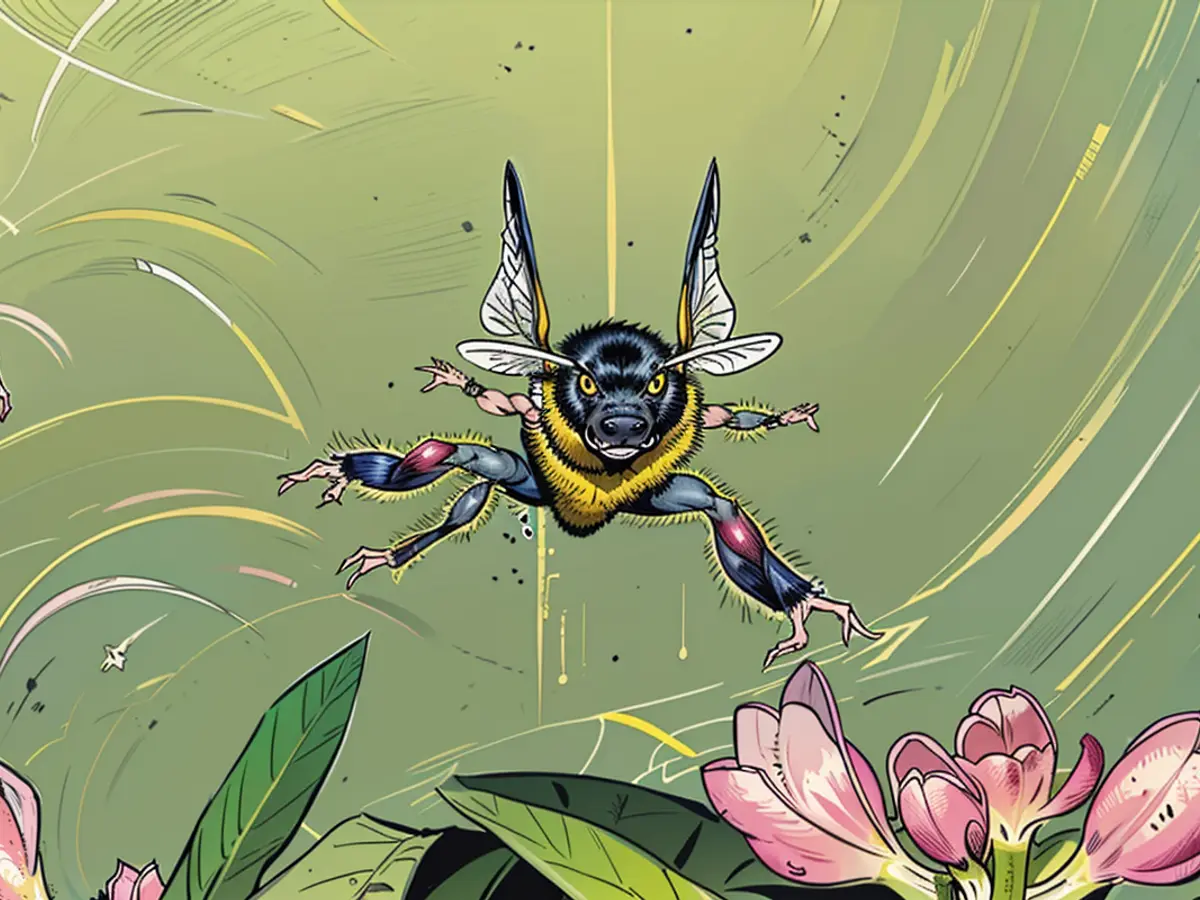Which creatures are commonly subjected to stereotypes?
In folktales and sayings, various characteristics are often ascribed to different animals. Research reveals that some of these beliefs hold truth, while others are merely myths.
Take the stubborn donkey, the dim-witted cow, or even the aged pig – numerous German proverbs make mention of these animals. Many of these attributes are negative, shaping their image in a less than favorable light. For instance, in older fables, foxes were depicted as crafty and wolves as evil. When animals take on human personas, the phenomenon is known as anthropomorphism. However, a close examination of scientific studies reveals that not all these stereotypes are grounded in fact.
Foxes are cunning and shrewd
Indeed so! Foxes possess a remarkable capacity for learning and social behavior. As Sven Herzog, an expert in wildlife ecology and game management from Dresden University of Technology, explains, "If a member of a family group once falls victim to a trap, both the affected individual and other family members will subsequently avoid such or similar settings."

Foxes also exhibit the ability to predict human behavior, distinguishing between harmless passersby and potential threats. By doing so, they maximize their chances of survival in diverse habitats. Another trait that contributes to the fox's cunning is its striking play behavior, which indicates a high degree of intelligence. In fact, the bond between siblings is stronger than the relationship between parents and offspring, according to Herzog. This social interaction necessitates a certain level of communication and social intelligence.
Sloths are lazy
Contrary to popular belief, sloths are not inherently lazy. While they do move slowly, they average a speed of eight to ten meters per minute, which translates to less than one kilometer per hour. When on land, they move even more slowly. Interestingly, Sloths’ lethargic behavior is an efficient energy-saving strategy.

As experts from the World Wide Fund for Nature (WWF) explain, as a result of their nutrient-poor diet, sloths rely on consuming minimal energy. Sloths typically snack on leaves, occasionally indulging in flowers, fruits, or even small animals. Their slow movements are a necessity as any unnecessary exertion could lead to exhaustion. What appears lazy to us is simply an adaptation to their unique dietary needs.
Donkeys are stubborn
It's not accurate to label donkeys as stubborn. Rather, their caution is misinterpreted as stubbornness. As a Zoological Research Museum Alexander Koenig (ZMFK) spokesperson puts it, "Donkeys hail from rugged and rocky regions where a single misstep could be fatal." As a result, donkeys stop and think before proceeding when they can't assess a situation adequately.

Unlike horses, donkeys are not considered flight animals, as stated by PETA. Instead, these hoofed animals remain calm and unresponsive to pain, fear, or illness. Donkeys tend to remain still in doubt, which may prompt others to describe them as stubborn.
Bees are industrious
While bees can be considered industrious, this attribute is primarily applicable to honeybees. As explained by the German Beekeepers' Association, this quality is mainly attributed to the female honeybee, or worker bee, during her role as a forager. Happy to collect nectar and honeydew, as well as pollen, and perform the vital task of pollination, honeybees are exceptionally diligent.

Furthermore, these social insects encourage each other to participate in foraging activities, demonstrating communal foraging behavior. "Bees work remarkably efficiently – there is hardly any idle time, and they only labor when it benefits the collective," observes the Beekeepers' Association.
When viewed collectively, a bee colony boasts remarkable foraging abilities. In a study, scientists discovered that a single bee went out for flights just four times per day. However, as a colony, bees managed to effectively collect nectar while individual bees appeared relatively inactive.
Ravens are bad parents

This belief is unfounded. While ravens hold a negative reputation as omens and bad parents, their behavior is actually quite the opposite. In reality, raven chicks rarely encounter orphanhood as they form monogamous pairs. Ravens are highly intelligent animals, as substantiated by Herzog, who serves as a wildlife expert. These birds display exceptional care towards their offspring.
The stereotype of "raven parents" arises from an age-old misconception about raven behavior. Ancient societies believed that ravens would abandon their young by forcing them out of the nest, giving rise to the expression "raven parents" and contributing to a negative perception in various European cultures. In truth, the opposite is the case – ravens exhibit remarkable care in raising their chicks.
From 2015, research revealed that wild boars have the habit of washing their food. A group of archaeologists witnessed these creatures meticulously cleaning their food prior to consumption at the Basel Zoo in Switzerland. Despite their findings, the scholars were not able to decipher if this behavior was acquired independently or through social interactions.

Despite the common belief, foxes are not just cunning and shrewd as depicted in folktales and sayings, but they are also highly intelligent animals with remarkable learning abilities and social behavior. Scientific studies reveal that foxes have the capacity to predict human behavior and avoid dangerous situations, maximizing their chances of survival.
Contrary to popular belief, sloths are not inherently lazy. Their slow movements are an efficient energy-saving strategy, allowing them to survive on minimal energy, given their nutrient-poor diet. In fact, their lethargic behavior is an adaptation to their unique dietary needs.







